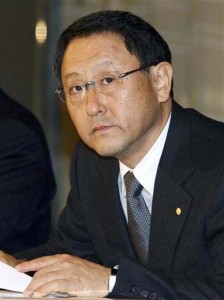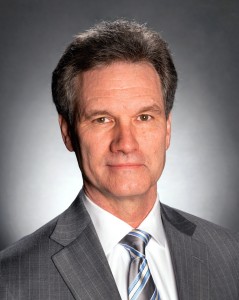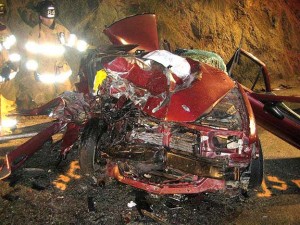Toyota is expected to pay $1 billion to settle a criminal investigation launched by the U.S. Justice Department into how the maker handled recalls linked to its problems with unintended acceleration nearly five years ago.
Both the Justice Dept. and the FBI had been looking to see whether the Japanese giant had intentionally misled federal safety regulators after it began receiving complaints that some of its vehicles could surge out of control unexpectedly. The automaker eventually recalled more than 10 million vehicles in the U.S. and millions more worldwide. It has also spent billions more to settle various lawsuits and to repair those vehicles.
The settlement comes just as the Justice Dept. ramps up a preliminary investigation into how General Motors has handled the recall of 1.6 million vehicles equipped with faulty ignition switches. That service action – now linked to at least 12 deaths – was announced just last month, but an internal GM timeline indicates the maker first saw indications of the problem as early as 2001.

Toyota CEO Akio Toyoda during testimony before Congress in 2010. He promised to amp up the maker's quality control.
Though Toyota has not yet confirmed it will settle with federal prosecutors, it issued a statement that it “has cooperated with the U.S. Attorney’s office in this matter for more than four years. During that time, we have made fundamental changes to become a more responsive and customer-focused organization, and we are committed to continued improvements.”
The deal, which is expected to be announced as early as today by Attorney-General Eric Holder, would involve a payment of over $1 billion and an agreement that Toyota would take additional actions to prevent similar lapses in its behavior in the future. In return, the Justice Dept. would defer prosecution.
(Despite pressure from regulators, tougher rules, are dangerous cars still on the road? Click Here to read this special report.)
The first of the maker’s recalls for unintended acceleration occurred in October 2009, shortly after a California Highway Patrol Officer and several family members were killed in a fiery crash involving a borrowed Lexus model. It soon became clear that the luxury sedan and a number of other Toyota products had floor mats that could inadvertently come loose and jam the accelerator pedal wide open.
But barely three months later, Toyota was forced to act again when it acknowledged millions more vehicles might be equipped with potentially sticky accelerator assemblies. The maker halted sales of a number of products until it could repair those on dealer lots as well as vehicles already sold.
It quickly became apparent that Toyota officials had known about the problems for some time. One internal memo – released prior to an angry hearing on Capitol Hill – showed the company crowing about having talked the National Highway Traffic Safety Administration out of ordering a recall, saving Toyota millions of dollars.
(Toyota halts sale of Camry, other key models due to new safety problem. Click Here for the story.)
Toyota has insisted that it did not intentionally deceive federal regulators, but the investigation showed otherwise.

On Tuesday, Mary Barra, GM CEO, announced the appointment of Jeff Boyer as the maker's new safety czar.
The Japanese company – the world’s largest automaker based on 2013 sales – has settled a number of lawsuits related to the unintended acceleration problem. But it has also continued fighting some critical cases in court, notably those based on claims that its products suffer from mysterious electronic gremlins that would cause its engines to surge out of control. Several investigations, including one handled by NASA, could not find any such evidence.
Recent market studies, including surveys by CNW Marketing, have shown that Toyota has largely rebuilt its image for building reliable vehicles since the unintended acceleration scandal first broke.
The big question is whether GM will be able to overcome its own safety crisis.
“The timing of this settlement is interesting because it means the government will finalizing the last major automotive recall, Toyota’s unintended acceleration, just as it gears up for the next big recall related to GM’s ignition switch,” said analyst Karl Brauer, of Kelley Blue Book. “The cases are similar because they both involve a long, established history of vehicle incidents that took years to identify and address.”
Indeed, GM may be taking some of the pages out of the Toyota playbook. Among other things, it appointed a new global safety czar on Tuesday, a step the Japanese maker took after its unintended acceleration recalls.
(For more on the new GM safety chief, Click Here.)
And, as Toyota CEO Akio Toyoda did, GM’s new chief executive, Mary Barra, is personally taking the lead in the ignition switch crisis. She once again apologized for the long-delayed recall on Tuesday, adding that, “Our goal is to make sure that something like this never happens again.”
GM now faces not only a probe by the Justice Dept., but separate investigations by both the U.S. House and Senate, an inquiry by NHTSA – and its own internal investigation.
(Click Here for a primer on the GM ignition switch fiasco.)


I’m all for fining auto makers who withhold safety information from NHTSA but this fine is actually for driver incompetence as no one has EVER proved that unintended acceleration occured in any of these vehicles because it did not.
Now we have a case where GM had faulty ignition switches and didn’t inform NHTSA properly. Will GM be fined a BILLION dollars? I doubt it. Toyota is being punished for the inability of many consumers to drive properly and safely and this is absolutely wrong.
Jorge, Internal Toyota documents show they worked to avoid a recall that they knew was justified. Toyota brought this on itself. And the problems with carpet entrapment and sticky accelerators were real. Don’t confuse them with the claims of mysterious electronic engine gremlins. That is NOT the reason Toyota got in trouble.
Paul E.